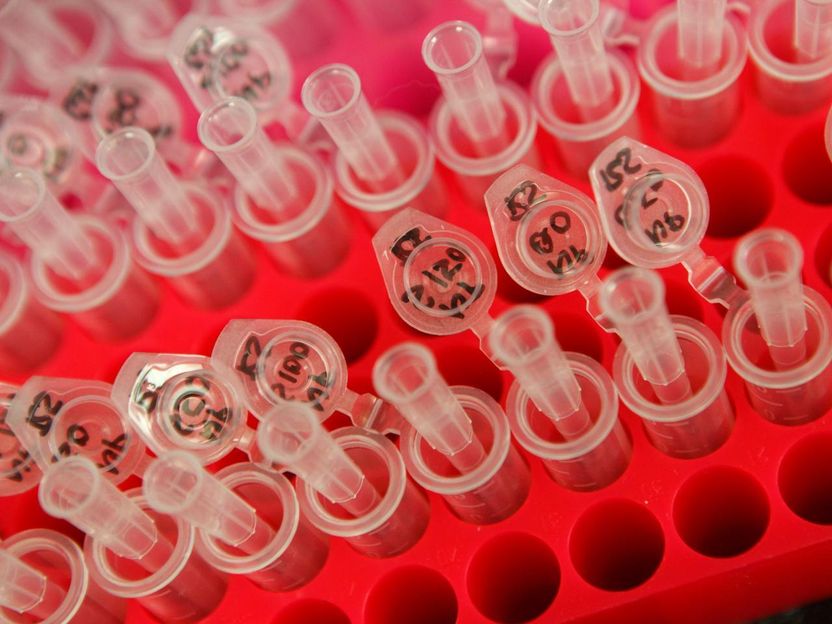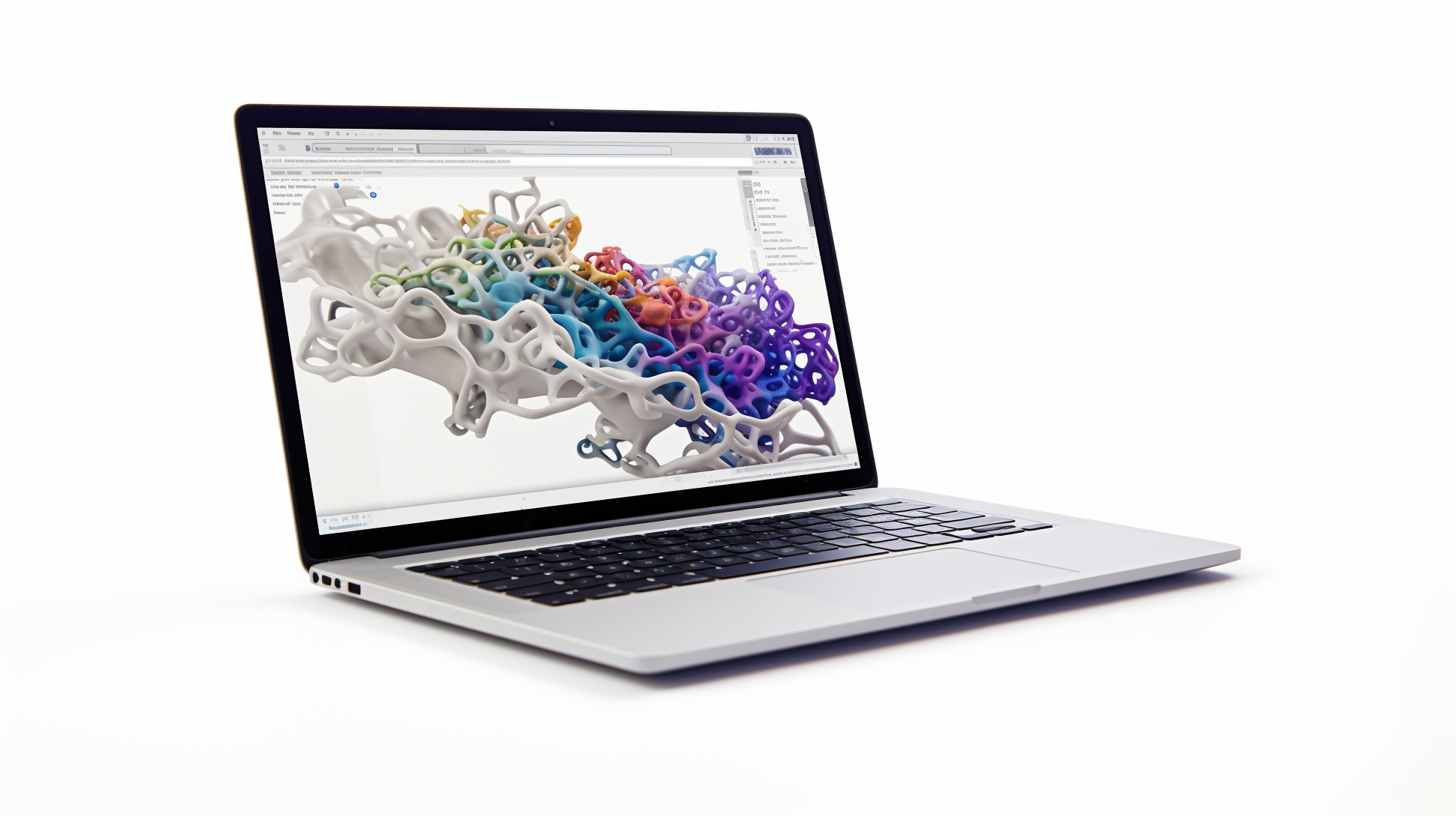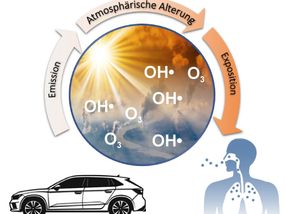Improving research with more effective antibodies
Scientists demonstrate flaws in protein detection tools, and outline a solution
A new study points to the need for better antibody validation, and outlines a process that other labs can use to make sure the antibodies they work with function properly.

A new study points to the need for better antibody validation, and outlines a process that other labs can use to make sure the antibodies they work with function properly.
The Neuro
Antibodies are used in laboratories and clinics to study proteins, which are the biomolecules that translate information from an organism's genes into the structure, function, and regulation of its tissues and organs. Genetic mutations can cause protein imbalances or malfunctions, leading to human disease.
Antibodies allow scientists to study proteins by identifying where these proteins are in the cell and in what quantities. Because of their importance, many companies make antibodies as commercial products, which they sell for scientific studies and for use in clinical settings.
Previous studies, however, have shown that many commercially available antibodies do not specifically identify the proteins they are supposed to detect. This calls into question research that has used these antibodies, and underlines the need for an accurate, standard process to test the quality of antibodies.
A team led by Peter McPherson at The Neuro (Montreal Neurological Institute and Hospital) decided to use a human protein as a test case, both to highlight the antibody validation problem and to demonstrate a procedure that other labs can use to validate their antibodies.
They focused on the protein product of a gene, C9ORF72, mutations in which are the major genetic cause of amyotrophic lateral sclerosis (ALS) and frontotemporal dementia.
After testing 16 antibodies advertised by companies as specific for C9ORF72, the team found that only one of the 16 accurately detected C9ORF72 in immunofluorescence, a technique in which antibodies stain proteins so they can be seen under a microscope. Other techniques were successful with only two other antibodies. The antibodies that passed the validation criteria have not yet been used in scientific studies. Antibodies that failed the validation criteria have been used in multiple studies.
The results call into question previous studies that used antibodies to detect C9ORF72 that either do not recognize the protein at all or recognize additional, unrelated proteins. Moreover, they emphasize the need for better antibody validation.
Science is facing a crisis in reproducibility; study results are often impossible to replicate. In cell biology, lack of effective antibodies contributes to the problem. In their paper, published in the open access journal eLife on Oct. 15, 2019, the researchers describe their method of validation, which other labs can replicate to make sure their antibodies function properly.
"As we worked on our C9ORF72 paper, it became less about one gene and more about a template other labs can use to validate antibodies," says McPherson. "The procedures we use are not revolutionary, and in fact this makes our approach widely applicable to any laboratory skilled in the art, yet to my knowledge this is one of the first papers to describe a streamlined process for antibody validation. A large part of the reproducibility crisis is because of poor antibody validation. We owe it to funders and patients to do better."
Original publication
Other news from the department science

Get the analytics and lab tech industry in your inbox
By submitting this form you agree that LUMITOS AG will send you the newsletter(s) selected above by email. Your data will not be passed on to third parties. Your data will be stored and processed in accordance with our data protection regulations. LUMITOS may contact you by email for the purpose of advertising or market and opinion surveys. You can revoke your consent at any time without giving reasons to LUMITOS AG, Ernst-Augustin-Str. 2, 12489 Berlin, Germany or by e-mail at revoke@lumitos.com with effect for the future. In addition, each email contains a link to unsubscribe from the corresponding newsletter.
Most read news
More news from our other portals
See the theme worlds for related content
Topic world Antibodies
Antibodies are specialized molecules of our immune system that can specifically recognize and neutralize pathogens or foreign substances. Antibody research in biotech and pharma has recognized this natural defense potential and is working intensively to make it therapeutically useful. From monoclonal antibodies used against cancer or autoimmune diseases to antibody-drug conjugates that specifically transport drugs to disease cells - the possibilities are enormous

Topic world Antibodies
Antibodies are specialized molecules of our immune system that can specifically recognize and neutralize pathogens or foreign substances. Antibody research in biotech and pharma has recognized this natural defense potential and is working intensively to make it therapeutically useful. From monoclonal antibodies used against cancer or autoimmune diseases to antibody-drug conjugates that specifically transport drugs to disease cells - the possibilities are enormous
Topic world Protein analytics
Protein analytics provides a deep insight into these complex macromolecules, their structure, function and interactions. It is essential for discovering and developing biopharmaceuticals, understanding disease mechanisms, and identifying therapeutic targets. Techniques such as mass spectrometry, Western blot and immunoassays allow researchers to characterize proteins at the molecular level, determine their concentration and identify possible modifications.

Topic world Protein analytics
Protein analytics provides a deep insight into these complex macromolecules, their structure, function and interactions. It is essential for discovering and developing biopharmaceuticals, understanding disease mechanisms, and identifying therapeutic targets. Techniques such as mass spectrometry, Western blot and immunoassays allow researchers to characterize proteins at the molecular level, determine their concentration and identify possible modifications.























































